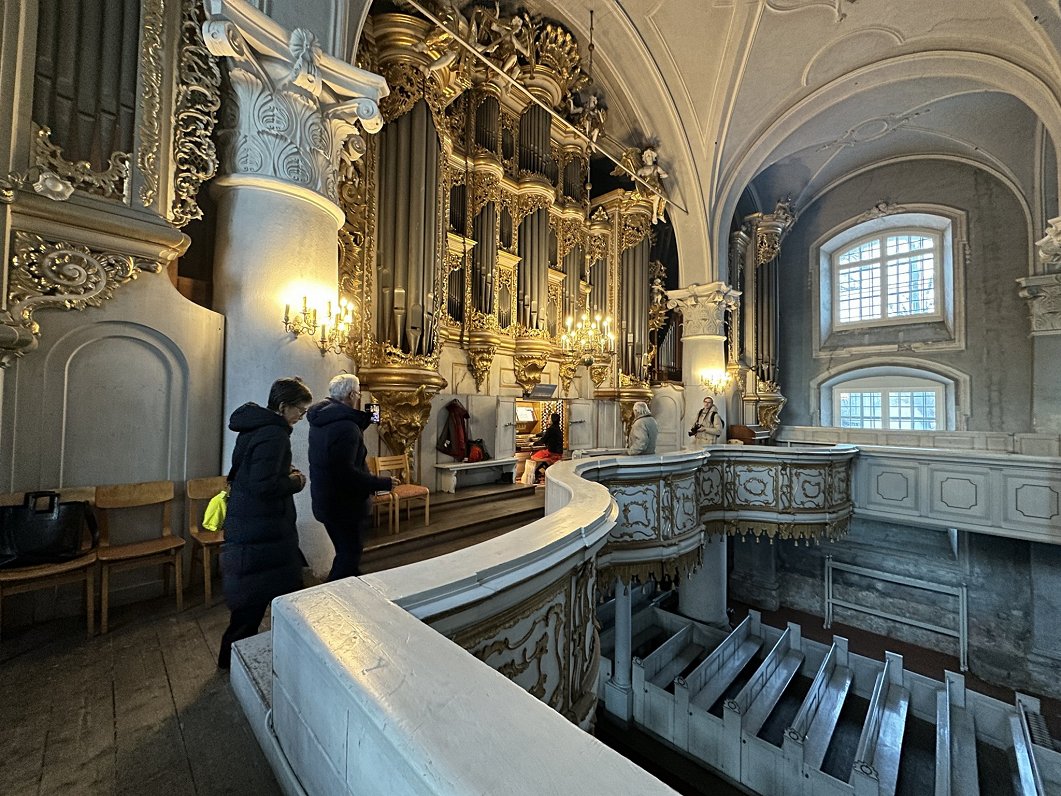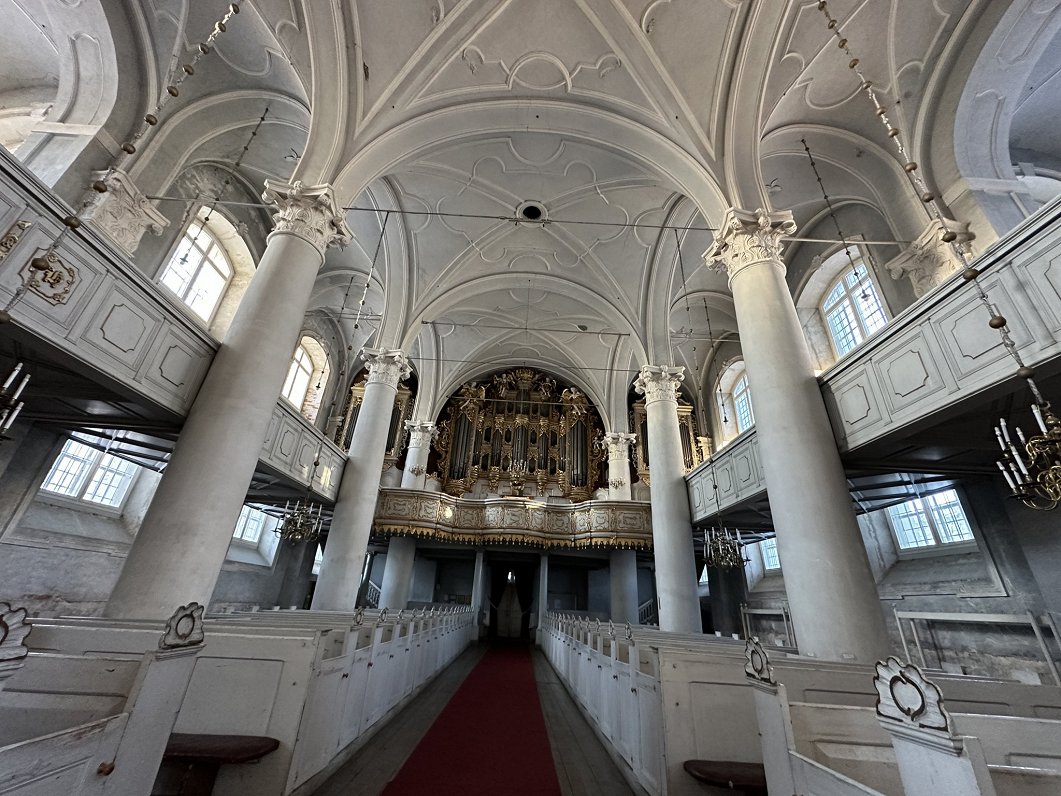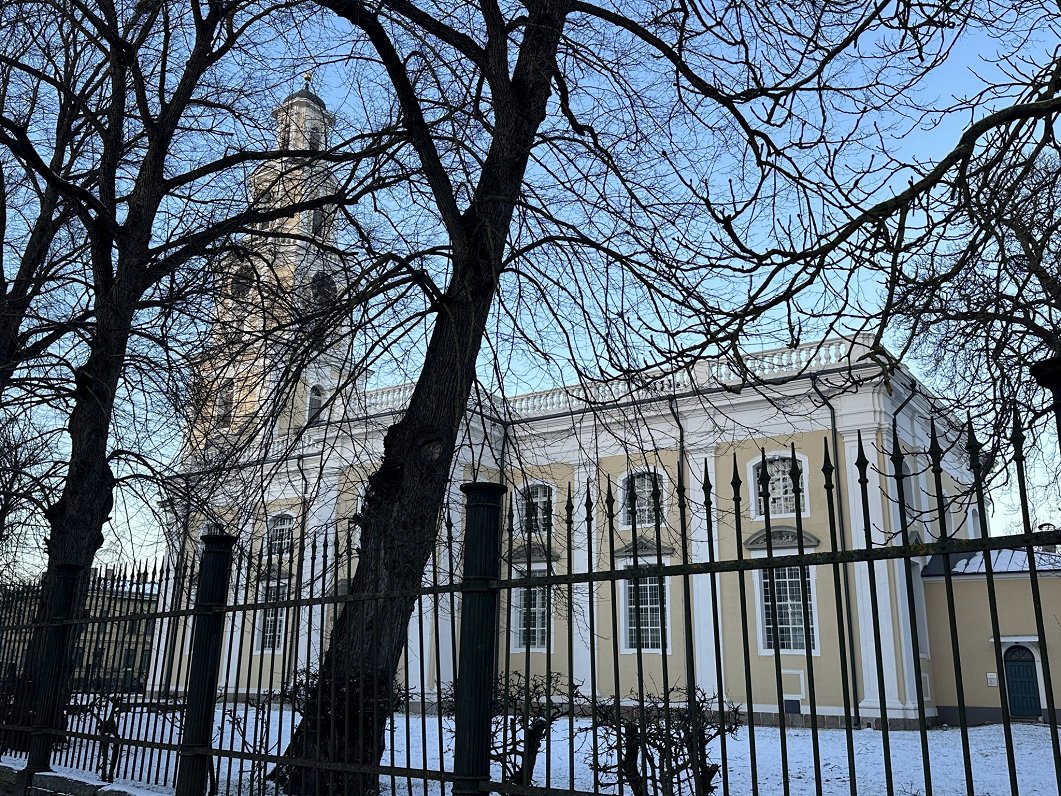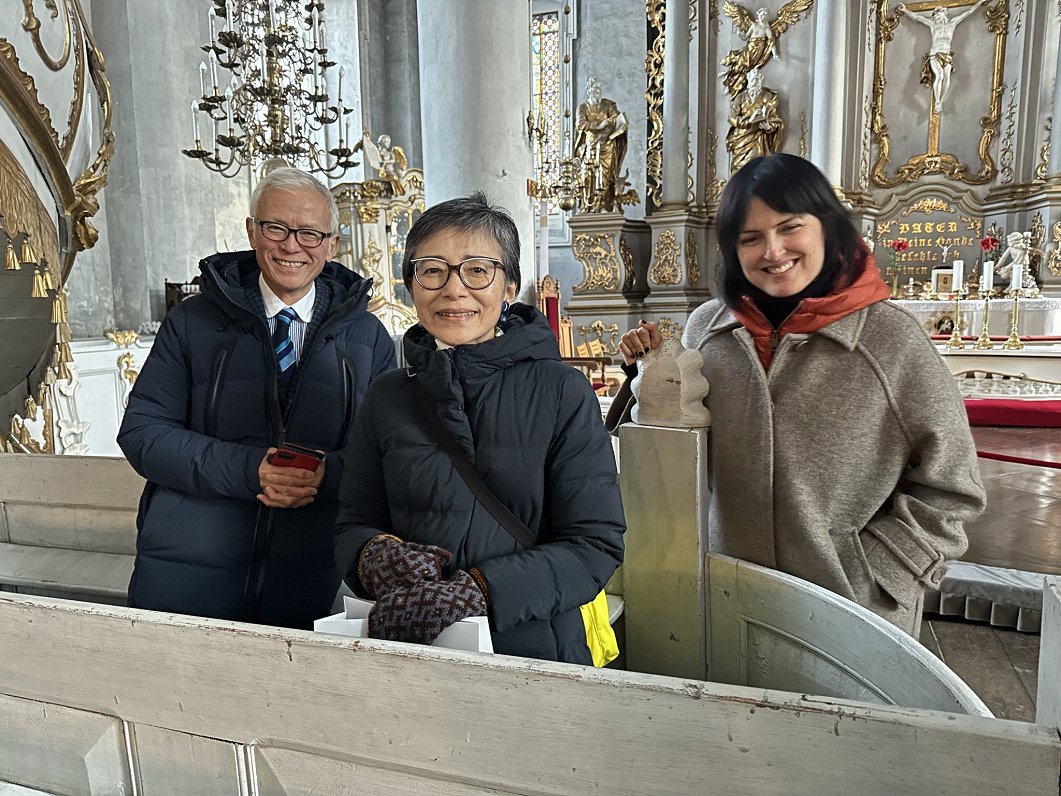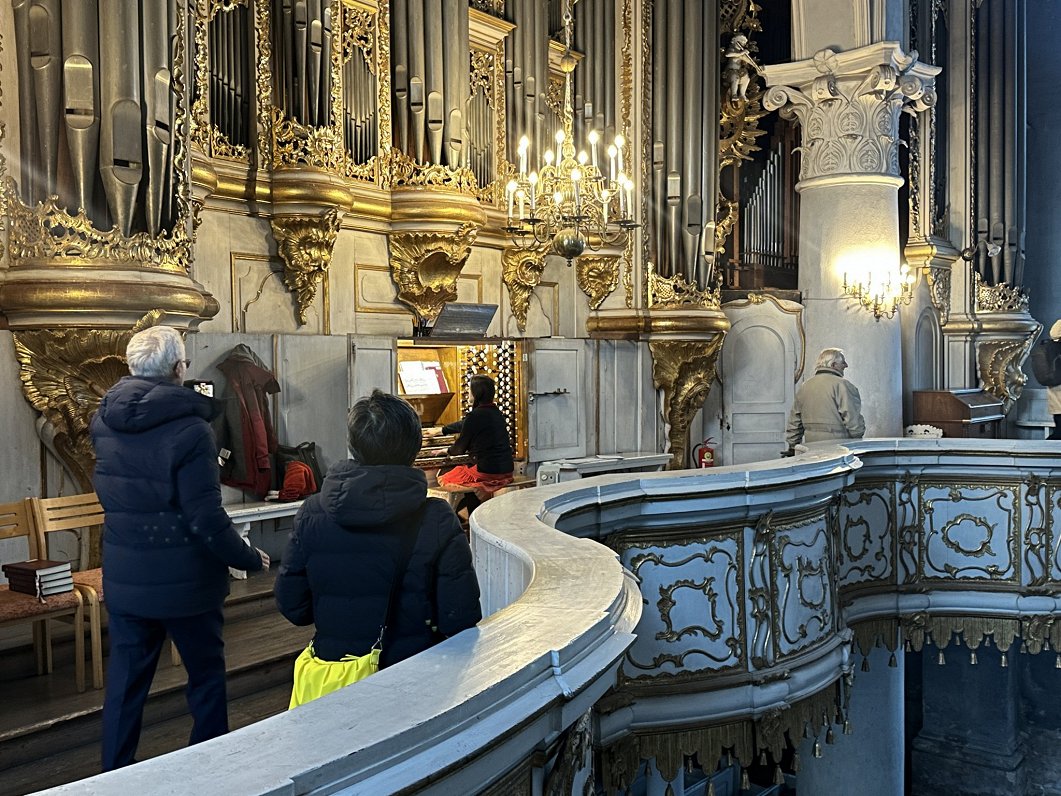Mr. Kogi Shuji took a look at the creative team's plans and at the region's opportunities to jointly plan arts and cultural projects in Liepāja in 2027 with the participation of Japanese artists.
While a piece by the world-renowned Japanese composer and pianist Ryuichi Sakamoto is performed by Maija Zaķis on the special, world-largest unconverted mechanical organs of Liepaja's Holy Trinity Cathedral, Latvian Radio manages to address Kogi Shuji, general secretary of the EU-Japan Fest Japan Committee, who is visiting Kurzeme on these November days. He shares his views on Kuldīga and Liepaja, who together with the region of South Kurzeme have engaged in the events of Liepāja as the European Capital of Culture 2027: “Kuldīga is a small town, Liepāja is not huge either, but both have very great artistic and cultural power, not only traditional but also looking to the future, especially with reference to the concert hall Great Amber.”
EU-Japan Fest is a cultural exchange organization promoting cooperation between the European Union and Japan. The organization supports programs related to Japan every year, such as concerts and theatrical and artistic events in various existing and emerging European Capitals of Culture. Kogi Shuji said: “We have supported 33 thousand Japanese artists in Europe in 31 years since 1993, working with 54 European Capitals of Culture.”
Baiba Bartkeviča, representative of the Liepāja creative team of “European Capital of Culture 2027”, emphasizes the keyword – cooperation: “I think this cooperation could be very fruitful because we see the extremely genuine and deep interest that Mr Kogi has in the region. He has partnered with Kaunas last year and will partner with Tartu next year. It's like a mission to him. I see that our local artists, along with Japanese artists, could create something new. Japan has an exceptional level of animation, they could bring some exhibitions too.”
The collaboration will not only allow for new experiences but will also promote international cooperation, says Baiba Bartkeviča: “We have many collaborators - from former cultural capitals with unified themes, including the Portuguese city of Evora in 2027, as with Scandinavian countries, there is the idea of Peru, Côte d'Ivoire, etc. The range of cooperation partners is geographically wide and is currently being further developed.”
For Liepāja, the concept of the European Capital of Culture is based on a story of "(un)rest". Within the framework of the concept, a five-line program has been established to talk about important problems that are relevant for both Liepāja and Europe as a whole.
